"doc. a fantasia"/avant-garde documentary
"doc. a fantasia"/avant-garde documentary
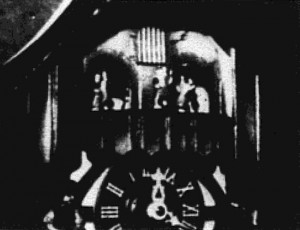
"In a Clock Store by Christopher Leggo of Berkeley, Calif. Chris has taken the lively musical selection by this title, performed on a Wurlitzer pipe organ, and shot about every imaginable clock there is, timing the action to the music. This 6-minute 16mm film was awarded a Ten Best Medal and the Experimental Film Award" PSA Journal, Nov. 1971, 42.
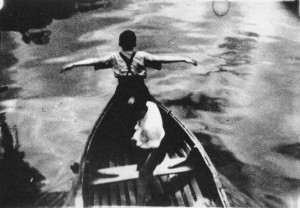
"An impressionistic portrait of city life during a day off in the summertime, with poetic narration set opposite some very observant and intimate views of Vancouver and its inhabitants. These include numerous street scenes; departure of the passenger ferry 'Hollyburn'; shots of and from Interurban railway and streetcars; sequences on Chinatown, Kitsilano Beach, Stanley Park, Victory Square, and the downtown waterfront; and a glimpse inside a typical beer parlour. The film received honourable mention in the amateur category at the 1950 Canadian Film Awards." (BC Archives)
Opening credit reads: "The Vancouver Branch of the National Film Society presents..."
Additional credits (on 1986 restored version): "Restored 1986 by Dennis J. Duffy for National Film Week '86 in co-operation with Canadian Filmmakers Distribution West and the Provincial Archives of British Columbia. Restoration funded by BC Heritage Trust."
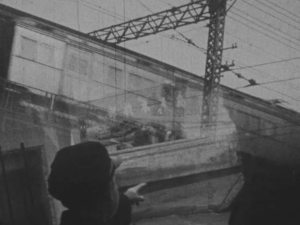
A film in the style of the city symphony.
Jazzflections is a sound and color blending film by Leon Paquette of Lynn, Mass. It's 2½ minutes of experimenting in how music looks color-wise and shape-wise. It's short enough to be entertaining and yet long enough to let you know how some other guy feels about the sound of music," PSA Journal, Mar. 1970, 44.
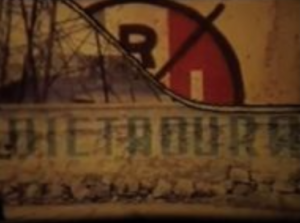
"La película realizaba un montaje lúdico al yuxtaponer los mensajes políticos oficiales escritos en las bardas de la ciudad con imágenes o textos que los ironizaban o alteraban su sentido. El título viene de un juego de palabras con el fraseo de las sílabas "Mé-xi-co" / jí-ca-ma", que solían usarse entonces como porra en los partidos de fútbol de la selección nacional" (Vázquez Mantecón, 2012).
"The movie had a playful montage by juxtaposing official political messages written in walls around the city with images or text that ironized them or altered their meaning. The title comes from a word game that played with the phrasing of the syllables "Me-xi-co / ji-ca-ma", a popular chant during the national team soccer games of the time" (Vázquez Mantecón, 2012).
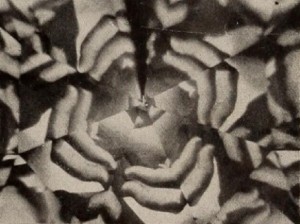
"Kaleidoscopio, by Dr. Roberto Machado, is a brilliant and provocative study in abstractions, filmed in its entirety through a kaleidoscope. Dr. Machado's cinematic extension tube, however, is quite obviously not the familiar small toy of one's childhood: in one sequence, delicate human fingers are deployed before the device, while in another a set of colored, kitchen measuring spoons do a gay dance in multiple. The lighting — which traditionally was transmitted only through the base — ranges from that type (through gleaming balls of crushed cellophane) to reflected illumination on an assortment of children's marbles. Billed by its producer as a "film musical," Kaleidoscopio is indeed instinct with strong rhythmic patterns and pulsations. The picture is an exciting and imaginative advance along the ever widening frontiers of personal motion pictures." Movie Makers, Dec. 1946, 471.
"Kaneko also made a few films that explored the theme and style of the city symphony genre. In Kōkyōgaku (Symphony, 9.5mm, 1930), which is less than three minute long, Kaneko edited together shots of very short duration that captured objects such as trees, water, and rail tracks; Kaneko described this work as an attempt to create “the movement of objects in symphonic ways.”" - Noriko Morisue, "Filming the Everyday: History, Theory, and Aesthetics of Amateur Cinema in Interwar and Wartime Japan" (Yale University: PhD Dissertation, 2020): 110.
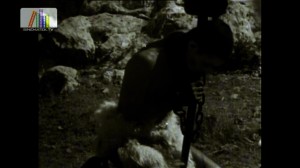
“Ruhi Su ve Rahmi Saltuk türküleri eşliğinde yoksulluk ve emek sömürüsünü ve mücadeleyi, direnişi farklı, ilginç bir kurgu ile anlatmış. 13 dakikalık 1969 yılı koşullarını düşünerek izlemek gerekiyor.” Sinematek.tv: http://sinematek.tv/kordugum-1969-2/ (15 Oct 2019).
“Accompanied by Ruhi Su and Rahmi Saltuk’s folk songs, the film tells the story of poverty, struggle, and resistance in a different way, with an interesting montage. This 13-minute-long film requires audiences to acknowledge the contexts of the year 1969 in viewing.” Sinematek.tv: http://sinematek.tv/kordugum-1969-2/ (15 Oct 2019).
Total Pages: 16